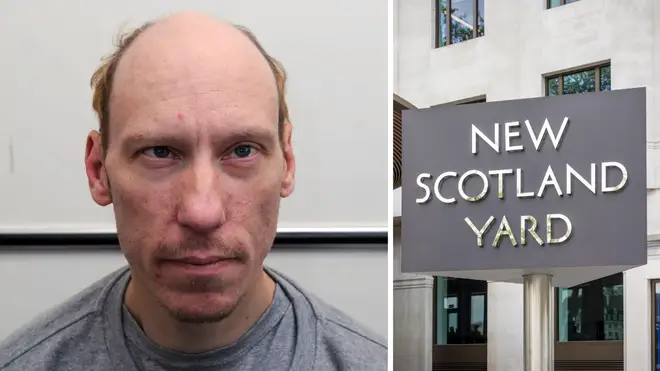
Boxing Day Special with Shelagh Fogarty 1pm - 3pm
23 June 2022, 11:21 | Updated: 23 June 2022, 12:29

A watchdog is going to reinvestigate how the Metropolitan Police handled the deaths of four men who were murdered by serial killer Stephen Port.
Stephen Port is serving a whole life sentence for the murders of Anthony Walgate, Gabriel Kovari, Daniel Whitworth and Jack Taylor.
He went on a killing spree in Barking, east London, from June 2014 to September 2015.
The Independent Office for Police Conduct (IOPC) said it will now look into how Scotland Yard investigated the cases after none of the 17 officers involved in the investigation faced disciplinary action.
Jurors at the inquests into the deaths of Anthony Walgate, 23, Gabriel Kovari, 22, Daniel Whitworth, 21, and 25-year-old Jack Taylor concluded that police failings "probably" contributed to the deaths of the three last victims, all of whom were unlawfully killed.
The jury's findings, in December last year, prompted the IOPC to announce that it would consider reinvestigating.
Read more: Woman and man charged with attempting to traffic child to UK to harvest organs
The inquest jury found officers missed repeated opportunities to catch Port after he plied first victim, Mr Walgate, with a fatal dose of date-rape drug GHB and dumped his body.
Port struck three more times before he was finally caught, killing each victim in near-identical circumstances.
The Met failed to link him to the deaths despite detective work carried out by the victims' family and friends that would lead them to the culprit.
Officers had denied accusations of prejudice and homophobia, instead blaming mistakes on being understaffed and lacking resources, with some acting up in senior positions.
Solicitor Neil Hudgell, speaking on behalf of the victims' families, said the police "have blood on their hands".
He said reopening the investigation was "the only logical decision open to the IOPC following the weight of evidence heard at the inquests".
He said: "The original IOPC report was hindered by a wall of silence, given that all but one of the 17 officers questioned gave 'no-comment' interviews.
"Our hope now is that the IOPC will have a lot more to go on.
"There remains a big question mark over whether police prejudice played a part in the investigations."
He added: "The inadequate investigations by the Metropolitan Police into the four deaths is one of the most widespread institutional failures in modern history, exacerbated by a woeful lack of remorse, regret or sympathy displayed at the inquests by some of the officers involved.
"Port was jailed for life, but the police have blood on their hands too. It is time for them to be held accountable."
Acting Deputy Commissioner of the Metropolitan Police, Helen Ball, said the force is "deeply sorry" about the failings in its response and it will offer "every support" to the fresh investigation.
“The deaths of these four young men is a tragedy and we are deeply sorry there were failings in our police response. Again, I give my own and the Met’s heartfelt apologies."
“The whole of the Met is committed to improving our investigations, our relationships and the trust people have in us to keep them safe. Since the deaths of Anthony, Gabriel, Daniel and Jack we have worked hard to ensure the service we provide is better while understanding we have more to do. Learning and recommendations from the Independent Office for Police Conduct, Her Majesty’s Coroner and our LGBT+ Independent Advisory Group of community members have enabled us to make a range of improvements."
IOPC regional director Graham Beesley said on Thursday the decision to reinvestigate "does not necessarily mean that the entirety of the original investigation will be examined again".
"Since the inquests concluded, an IOPC team has been closely examining the original investigation material and comparing it with the information and verbal accounts provided to the new inquests," he said.
"A matter can only be reinvestigated by the IOPC if we are satisfied that the original investigation was materially flawed in a manner which had an impact on the subsequent decisions made on discipline, performance and/or referral to the Crown Prosecution Service, and/or there is 'significant new information' that requires further investigation.
"In this case, the reinvestigation process has identified evidence which meets both the significant new information and material flaw categories, and we believe a proportionate - but thorough - new investigation is in the public interest."
More follows